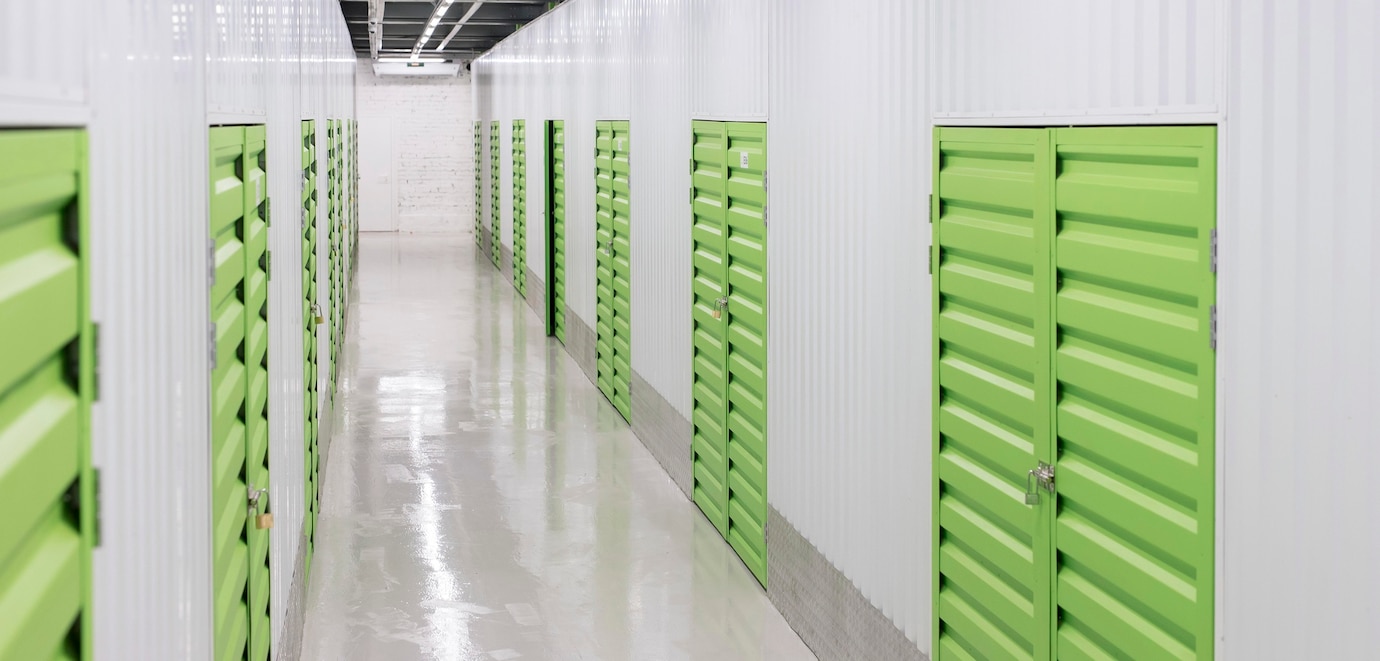Home
Solar Power Experts: What You Must Consider Before Hiring
Published
6 days agoon
By
danielclarke
Have you considered integrating solar energy into your home to lighten the load on both the environment and your energy bills? If you’ve answered yes, it’s quite likely that you’ve started diligently researching online, sifting through countless forums and reviews, only to realize you’re somewhat lost in a whirlwind of information. But worry not, we’re here to simplify all those complexities of solar energy and guide you through the process. Today, we’ll take you through some key points you need to be aware of before hiring solar installers, who will help you embark on your sustainable energy journey.
As the world becomes steadily eco-conscious, homeowners are seeking renewable, sustainable solutions to lessen their carbon footprint and foster a cleaner environment for future generations. Solar energy provides one such alternative – a viable path that reduces the reliance on fossil fuels and plays a significant role in combating climate change. However, the mere desire to engage in this noble cause is not sufficient; it’s the execution part that often leaves homeowners feeling a tad overwhelmed.
In this post, we’ll explore the complexity of installing solar energy systems, pitfalls to avoid, and how to choose the best solar installers in an overcrowded market. From discussing the core benefits of this technology to the intricacies of installation, we aim to arm you with all the crucial knowledge needed for this significant decision. Let’s dive in.
Unravelling the Dynamics of Solar Energy and Its Importance
Understanding the science behind solar energy can be akin to navigating an intricate maze. But grasper the core principles lays the foundation for a fruitful journey towards harnessing this renewable power source. Solar energy harnesses the sun’s power to generate electricity, utilizing PV (photovoltaic) systems or solar thermal systems.
However, the translation of how panels on your rooftop can power your entire house might still seem elusive. What’s the magic link? Your chosen solar installers play an instrumental role in this transformation. They configure and install these panels, optimizing their performance to ensure that you can enjoy green, sustainable energy in your home.
More than just a source of electricity, solar energy represents a broader commitment to the planet and its future. Every household that converts to this clean and renewable energy source contributes to the fight against climate change. Your decision to install solar panels is an essential part of this larger cause.
Decoding the Solar Installation Process
You’ve probably already wondered exactly how complicated the solar installation process is, and the answer largely depends on the expertise of the solar installers you hire. A competent solar supplier will guide you through site assessment, system design, and installation.
The first step entails assessing your property to determine the most suitable location for the panels. Factors such as shade, roof angle, and structural stability play a crucial role at this stage. Next, the team designs a system tailored to your specific needs, factoring in overall energy usage and peak demands.
Installing the solar panels is the next major step. Your installer will attach a mounting system to your roof, on which the panels will be secured. Following this, the team will install inverters that convert DC output into a usable AC form.
Choosing the Right Solar Installer
Choosing the right solar installer is a pivotal step in your solar energy journey. While a proficient installer will ensure a smoothly run project with maximum efficiency, a hasty decision could result in poor workmanship and unnecessary expenses.
It’s advisable to seek a company with a good track record, certified credentials, and positive client feedback. Ensure the company has substantial experience in installing the specific type of solar system you’re considering. Similarly, it’s imperative they willingly answer your queries, clarify any doubts and go the extra mile to ensure your satisfaction.
Moreover, the installer should offer a comprehensive service – from initial consultation to post-installation care. They should be ready to handle maintenance, and necessary repairs and be capable of providing comprehensive advice on incentives and rebates available to you.
Unearthing the Benefits and Hitches of Solar Energy
Undoubtedly, solar energy brings a plethora of benefits – clean and renewable power, decreased energy bills, and reduced dependency on the grid. It’s a long-term investment that often pays for itself over time. However, like any substantial investment, it comes with its share of challenges.
Cost is a significant consideration. The upfront expense can be sizeable, although various financial incentives (like tax incentives and rebates) can soften the blow. The system’s efficiency can also be affected by factors like geographical location and weather conditions. Not forgetting, transitioning to solar energy also necessitates a certain degree of structural adjustment to your home.
Despite these challenges, the long-term benefits usually overshadow the initial hurdles. It’s essential to enter this journey with your eyes wide open, armed with adequate knowledge and guidance, underscoring the importance of competent and reliable solar installers.
Keeping the Momentum Up: The Path Post Installation
The journey doesn’t end with the installation of the solar panels. It’s a profound commitment to the environment that calls for continuous effort and smart maintenance. Regular cleaning and checking for damages will ensure your system’s longevity.
Likewise, regular monitoring of the system’s output will help you optimize your energy usage. Your solar installer should provide practical training on system monitoring and troubleshooting as well. By maintaining a healthy relationship with your installer, shifting to solar power can be an incredibly rewarding experience.
Conclusion
As global climate change continues to pose serious environmental challenges, the importance of renewable energy has never been greater. Solar power presents a viable solution and a significant step towards sustainable living. Recognizing the pivotal role professional solar installers play in this transition, making the right choice is essential.
Through comprehensive site assessments, system design, and installation, proficient installers make the process seamless and efficient. The immediate hurdles might seem daunting, but let it not overshadow the greener side – a cleaner environment, reduced bills, and for that feeling of being part of a much larger, impactful cause.
So, while looking for solar installers, ensure they’re bringing not just their technical skills, but also their passion for environmental stewardship to the table. After all, transitioning to solar energy is not merely an upgrade of your home’s energy source, but an invaluable investment in our collective future.
You may like
Business
The Pros and Cons of Renting a Storage Unit: Is It Right for You?
Published
2 weeks agoon
November 27, 2024By
danielclarke
Renting a storage unit has become a popular choice for individuals and businesses facing space constraints or in need of secure, accessible storage. Whether it’s for seasonal items, business inventory, or moving purposes, a storage unit offers flexibility and control over belongings.
As convenient as it sounds, renting a storage unit isn’t a one-size-fits-all solution. To decide if this option fits your needs, let’s explore the benefits and drawbacks of renting a storage unit, the types of self-storage solutions available, and how to find the best option for you.
Why Consider Renting a Storage Unit?
The appeal of storage units lies in their ability to provide extra space, security, and peace of mind. For those overwhelmed with clutter or seasonal items or lack storage space at home, a storage unit can be a lifesaver. Understanding the trade-offs of renting is essential for making an informed choice.
What Are the Benefits of a Storage Unit?
- Extra Space and Organisation: The most immediate advantage of renting a storage unit is its extra space. This option helps declutter your home, creating a more organised living environment without discarding items that may be valuable or hold sentimental value. For businesses, extra space for inventory can streamline operations and allow for easy scaling without investing in costly commercial property.
- Secure Storage for Valuables: Modern storage facilities prioritise security with features such as surveillance cameras, gated access, and on-site staff. This makes them an ideal option for safeguarding valuable or irreplaceable items. For individuals who travel frequently or live in shared spaces, having a secure storage unit can be invaluable in keeping possessions safe.
- Flexible Self-Storage Solutions: Many facilities offer a range of unit sizes and types, catering to diverse needs. Climate-controlled storage units protect temperature-sensitive items like electronics, furniture, and documents from humidity and extreme temperatures. 24/7 access storage units also allow customers to retrieve their belongings anytime. This is helpful for business owners who may need off-hours access.
- Temporary Storage During Life Transitions: Life events like moving, renovating, or expanding a family often require temporary storage. Renting a unit during these transitions can provide a reliable place to store items without the pressure of deciding what to keep or discard immediately. The flexibility of short-term and month-to-month leases makes it an adaptable solution.
Pros of Renting Storage Units
- Convenient Access: With options for 24/7 access storage units, renters have the flexibility to access their belongings at any time, which can be particularly useful for business inventory or personal items stored off-site.
- Cost-Effective for Short-Term Needs: Storage units are often more affordable than larger apartments or commercial leases for people facing temporary space constraints, such as during a move.
- Adaptable Space Options: Storage facilities often provide units in various sizes, making it easy to scale up or down as needed. Seasonal equipment, sports gear, and holiday decorations are common items stored here, freeing up valuable home space.
What Are the Drawbacks of Renting a Storage Unit?
- Monthly Costs Add Up: Renting a storage unit can be a recurring expense, and costs vary based on size, location, and amenities. For those looking to store items long-term, it’s essential to weigh the monthly fees against the value of the items. Over time, storage fees can add up, and sometimes the expense may outweigh the convenience.
- Potential for Clutter: While a storage unit can help declutter your home, it can also lead to an “out of sight, out of mind” mindset. Without a system for periodically reviewing stored items, storage units may become an accumulation of items that are rarely, if ever, used. This can result in paying for space filled with items that might be better sold, donated, or discarded.
- Limited Climate Control in Basic Units: Basic storage units are not climate-controlled, which means items like wood furniture, electronics, and delicate fabrics may be susceptible to damage from humidity, extreme temperatures, or pests. For those storing valuable or sensitive items, opting for climate-controlled storage is essential but may come at a higher price.
- Distance and Accessibility: Unlike home storage, accessing items in a rented storage unit requires travel. While facilities are generally located conveniently, retrieval still requires some planning. If items in storage are needed frequently, the inconvenience can outweigh the benefits of storing them off-site.
How to Decide if Renting a Storage Unit is Right for You
- Assess Your Needs: Take a close look at what you need to store, how long you expect to store it, and how often you’ll need access. If your storage needs are temporary or seasonal, renting might be ideal. However, if you’re considering long-term storage, ensure that the cost aligns with the value of the items being stored.
- Consider the Types of Storage Units: Storage facilities, like those at Storage Units Coffs Harbour, often offer varied options, from standard to climate-controlled units and 24/7 access storage. Climate-controlled storage may be necessary for items like artwork or electronics to prevent damage, especially in regions with extreme weather.
- Factor in Location and Accessibility: Choose a storage facility close to home or work if you need regular access. Otherwise, opting for a more affordable facility farther away might make sense if access is less frequent. Facilities with 24/7 access benefit for business owners needing off-hours entry to their inventory.
- Evaluate Costs and Long-Term Value: Monthly storage fees can range widely, so comparing rates and contracts is crucial. Calculate the total cost if you plan to store items for the long term. Sometimes, the cumulative cost of storage may exceed the value of the items stored, making it more practical to downsize belongings or find alternative storage options.
Conclusion
Renting a storage unit can be a practical solution for those needing extra space, secure storage, or temporary accommodations for their belongings. The costs, potential for clutter, and need for careful planning mean it’s essential to test whether it’s the right choice. By assessing your storage needs, selecting the appropriate type of unit, and reviewing costs, you can make an informed decision that maximises the benefits while minimising the drawbacks. Storage units offer a balance of convenience and security. But as with any investment, it’s best to ensure it aligns with your unique needs and budget.
Business
Land Valuation: What Every Property Owner Should Know
Published
4 months agoon
August 4, 2024By
danielclarke
Land valuation is a crucial aspect of property ownership that every landowner should understand. It determines the property value for various purposes, including taxation, sales, and development. As of 2023, the median land value per square metre in Sydney reached approximately AUD 2,500. This high valuation reflects the intense demand and limited supply in urban areas, driving significant capital growth for landowners over the past decade. This trend underscores the robust investment potential of land ownership in Australia’s major cities.
This guide mentions the key elements of land valuation, the process involved, the importance of statutory land valuation, unimproved value, property valuation objections, and more.
-
Understanding Land Valuation
Land valuation determines the value of a piece of land. This valuation is essential for several reasons, including calculating property taxes, assessing market value for sale or purchase, and planning for development. Various factors influence land valuation, like location, size, zoning, and future development.
-
Statutory Land Valuation
Statutory land valuation is a government-mandated land value assessment used for taxation purposes. The Valuer-General, an official appointed to oversee land valuations, conducts these assessments. The value determined through statutory land valuation is used to calculate property taxes and rates.
-
Unimproved Value
A critical component of statutory land valuation is the unimproved value, which refers to the value of the land in its natural state, without any buildings, structures, or improvements. Understanding the unimproved value is essential for property owners, as it forms the basis for land tax assessments and other statutory obligations.
-
The Land Valuation Process
The land valuation process involves several steps to ensure an accurate and fair assessment of property value.
-
Property Assessment
Property assessment involves a comprehensive land analysis, including its size, location, topography, and zoning regulations. Property assessment provides a detailed overview of the land’s characteristics, which are crucial for determining its value.
-
Annual Land Valuation
Annual land valuation is the process of reassessing land value every year. This ensures that property valuations remain up-to-date and reflect current market conditions. The Valuer-General oversees the annual land valuation process, ensuring consistency and accuracy in property assessments.
-
Subdividable Land Valuation
Subdividable land valuation refers to the assessment of land that can be divided into smaller parcels for development. This type of valuation considers the potential increase in value from subdividing the land, making it crucial for property owners considering the development or sale of subdividable land.
-
Property Valuation Objection
Property owners can object to their land valuation in Sydney if they believe it is incorrect or unfair. A property valuation objection is a formal process where the property owner can challenge the assessed value. This process involves submitting a detailed objection to the relevant authorities, such as the Valuer-General’s office, outlining the reasons for the disagreement, and providing supporting evidence.
-
The Role of the Valuer-General
The Valuer-General is responsible for conducting statutory land valuations, overseeing annual land valuations, and handling property valuation objections. The Valuer-General ensures that all property assessments are fair and accurate, and comply with relevant legislation, such as the Land Valuation Act.
-
The Land Valuation Act
The Land Valuation Act is the legislative framework that governs land valuation processes. It outlines the principles and procedures for conducting land valuations, handling objections, and ensuring transparency and fairness in property assessments. Understanding the Land Valuation Act is essential for property owners, as it provides the legal basis for all valuation activities.
-
Factors Influencing Land Valuation
Several factors influence land valuation, making it a complex and dynamic process. These factors include:
-
Location
Properties in desirable areas, like urban centres or scenic locations, have higher values than those in less sought-after regions.
-
Size and Shape
The size and shape of a land parcel also play a crucial role in its valuation. Larger parcels have higher values, but the shape of the land can influence its usability and development potential.
-
Zoning and Land Use Regulations
Zoning laws and land use regulations dictate how a property can be used, affecting its value. Properties zoned for commercial or residential development have higher values than those with agricultural or industrial zoning.
-
Market Conditions
Current market conditions, including supply and demand dynamics, significantly influence land values. Land values tend to increase during high demand and low supply periods, and vice versa.
-
Property improvements
The condition and quality of any structures or enhancements on the land can significantly impact its overall value. Home improvements can boost a property’s worth and, consequently, affect land valuation
-
Infrastructure and Amenities
The availability of infrastructure and amenities, such as roads, utilities, schools, and parks, also impacts land values. Properties with easy access to these facilities are more valuable.
-
The Importance of Accurate Land Valuation
Accurate land valuation is crucial for various reasons:
-
Taxation
Land valuations are used to calculate property taxes. Accurate valuations ensure that property owners pay a fair amount based on the true value of their land.
-
Buying and Selling
Accurate land valuations provide a realistic estimate of market value when buying or selling property, helping both buyers and sellers make informed decisions.
-
Development Planning
For property owners considering development, accurate land valuations are essential to plan and secure their finances. They provide a clear picture of the land’s potential value and profitability.
-
Navigating Property Valuation Objections
You can file a property valuation objection if you believe your property valuation is incorrect,. Here are the steps involved:
- Review the Valuation Notice: Review the valuation notice sent by the Valuer-General’s office. Note the assessed value and any accompanying details.
- Gather Evidence: Collect evidence supporting your claim that the valuation is incorrect. This can include recent sales data of similar properties, independent valuation reports, and any relevant market analysis.
- Submit the Objection: File your property valuation objection with the Valuer-General’s office, providing all necessary documentation and a detailed explanation of why you believe the valuation is inaccurate.
- Attend Hearings: Be prepared to attend hearings or meetings where your objection will be reviewed. Present your evidence clearly and concisely.
- Await the Decision: After reviewing your objection, the Valuer-General’s office will issue a decision. If your objection is upheld, the valuation will be adjusted accordingly.
-
Conclusion
Land valuation is a critical aspect of property ownership that impacts taxation, sales, and development planning. Understanding the processes involved, from statutory land valuation to property valuation objections, is essential for all property owners. By staying informed about factors influencing land value and knowing your rights under the Land Valuation Act, you can ensure fair and accurate assessments of your property.
Home
The Ultimate Guide to Home Insurance: Protecting Your Home and Peace of Mind
Published
4 months agoon
July 30, 2024By
admin
When it comes to safeguarding your most valuable asset—your home—home insurance plays a crucial role. But what exactly is home insurance, and why is it so important? In this guide, we’ll delve into everything you need to know about home insurance, from the basics to the finer details. Whether you’re a new homeowner or looking to update your current policy, this comprehensive guide will help you understand the ins and outs of home insurance, ensuring you make informed decisions to protect your home and peace of mind.
What is Home Insurance?
Home insurance is a form of property insurance designed to cover losses and damages to an individual’s residence, along with furnishings and other assets in the home. It also provides liability coverage against accidents in the home or on the property.
Definition and Purpose
Home insurance serves as a financial safety net for homeowners. In exchange for a premium, the insurance company agrees to cover losses and damages as outlined in the policy. The purpose is to protect homeowners from significant financial burdens resulting from unexpected events like fires, theft, or natural disasters.
Different Types of Home Insurance Policies
There are various types of home insurance policies, each offering different levels of coverage. Understanding these can help you choose the right one for your needs. From basic to comprehensive, these policies cater to different types of residences and homeowners’ needs.
Why Do You Need Home Insurance?
Home insurance is not just a luxury—it’s a necessity for several reasons.
Financial Protection
Imagine a storm damages your roof, or a fire breaks out in your kitchen. Home insurance helps cover the costs of repairs or replacements, preventing you from paying out of pocket.
Legal Requirements
In many places, mortgage lenders require borrowers to have home insurance. This protects the lender’s investment and ensures that the homeowner can recover from damages without defaulting on their loan.
Peace of Mind
Knowing that your home and belongings are protected can provide immense peace of mind. You can sleep easier at night knowing that you have a safety net in place for unexpected events.
Components of a Home Insurance Policy
Understanding the components of a home insurance policy can help you evaluate whether you have adequate coverage.
Dwelling Coverage
This covers the structure of your home, including walls, roof, and built-in appliances, against risks like fire, wind, and hail.
Personal Property Coverage
This protects your personal belongings, such as furniture, clothing, and electronics, from theft or damage.
Liability Coverage
Liability coverage offers protection if someone is injured on your property and decides to sue you. It covers legal fees and any damages you are found liable for.
Additional Living Expenses (ALE) Coverage
If your home becomes uninhabitable due to a covered loss, ALE covers the cost of temporary housing and other related expenses.
Types of Home Insurance Policies
There are several types of home insurance policies, each designed to suit different needs.
HO-1: Basic Form
The most basic policy covers specific perils like fire and theft but offers limited protection.
HO-2: Broad Form
This policy covers a broader range of perils, including vandalism and falling objects.
HO-3: Special Form
The most common policy, HO-3, offers comprehensive coverage for the home and personal property, except for specific exclusions.
HO-4: Tenant’s Form
Designed for renters, this policy covers personal property and liability but not the building itself.
HO-5: Comprehensive Form
This provides the most extensive coverage, including high-value items, with fewer exclusions than other policies.
HO-6: Condo Form
For condominium owners, this policy covers personal property and the interior structure of the unit.
HO-7: Mobile Home Form
Similar to HO-3 but tailored for mobile or manufactured homes.
HO-8: Older Home Form
Designed for older homes with high replacement costs, this policy covers fewer perils but adjusts for the value of older structures.
Factors Affecting Home Insurance Premiums
Several factors can influence the cost of your home insurance premiums.
Location
Homes in areas prone to natural disasters or with high crime rates may have higher premiums.
Home Value and Condition
The age, size, and condition of your home impact the cost of insurance. Older homes or those needing repairs may cost more to insure.
Coverage Amount and Deductibles
The level of coverage you choose and your deductible amount directly affect your premium. Higher coverage and lower deductibles increase costs.
Claims History
A history of frequent claims can lead to higher premiums, as insurers may view you as a higher risk.
How to Choose the Right Home Insurance Policy
Selecting the right policy involves careful consideration of your needs and options.
Assessing Your Needs
Consider factors like the value of your home, location, and personal belongings. Evaluate the risks you face and the coverage you require.
Comparing Quotes
Get quotes from multiple insurers to find the best rate and coverage. Look for discounts and special offers.
Reading the Fine Print
Carefully review policy details to understand what is and isn’t covered. Pay attention to exclusions and conditions.
Common Exclusions in Home Insurance
Understanding what is not covered by home insurance is as important as knowing what is.
Floods and Earthquakes
Standard policies typically do not cover floods and earthquakes. Separate policies or endorsements are needed for these perils.
Wear and Tear
Regular maintenance issues and gradual wear and tear are generally not covered by home insurance.
Intentional Damage
Damage caused intentionally by the homeowner or residents is excluded from coverage.
How to File a Home Insurance Claim
Filing a claim can be straightforward if you know the steps.
Step-by-Step Guide
- Document the Damage: Take photos and note the date and details of the damage.
- Contact Your Insurer: Report the damage and provide necessary documentation.
- Meet with an Adjuster: An adjuster will assess the damage and determine the payout.
- Receive Payment: After approval, receive payment for repairs or replacements.
Tips for a Successful Claim
- Keep detailed records of possessions and their values.
- Provide accurate and thorough information when filing a claim.
- Follow up regularly to ensure the process moves forward.
Tips for Lowering Home Insurance Premiums
There are several ways to reduce your home insurance costs.
Increasing Deductibles
Opt for a higher deductible to lower your premium. Just ensure you can afford the out-of-pocket costs in case of a claim.
Bundling Policies
Many insurers offer discounts for bundling home and auto insurance policies.
Home Improvements
Investing in home improvements, such as security systems or new roofing, can lead to lower premiums.
The Impact of Natural Disasters on Home Insurance
Natural disasters can significantly affect your home insurance policy and coverage needs.
How Disasters Affect Coverage
Disasters can lead to higher premiums and deductibles, especially in high-risk areas.
Preparing for Disasters
Consider adding endorsements for flood or earthquake coverage if you live in an at-risk area.
The Role of Home Insurance in Mortgage Approval
Home insurance is often a requirement for mortgage approval.
Why Lenders Require Home Insurance
Lenders want to protect their investment, ensuring that the property can be repaired or replaced if damaged.
Impact on Loan Terms
The cost and terms of home insurance can affect your mortgage terms and monthly payments.
Home Insurance and Personal Liability
Liability coverage is an essential part of home insurance, protecting you from potential lawsuits.
Understanding Liability Coverage
Liability coverage can pay for medical expenses, legal fees, and damages if someone is injured on your property.
Examples of Liability Claims
Common claims include slip-and-fall accidents, dog bites, and damage caused by falling branches.
Trends in the Home Insurance Industry
The home insurance industry is evolving with new trends and challenges.
Technological Advances
Technology, like smart home devices and AI, is being used to assess risks and reduce claims.
Climate Change and Insurance
Climate change is impacting insurance costs and coverage as natural disasters become more frequent.
Conclusion
Home insurance is a vital part of homeownership, offering protection and peace of mind against unexpected events. By understanding the different types of policies, coverage options, and factors affecting premiums, you can make informed decisions to protect your home and financial future. Remember, the right policy not only safeguards your home but also provides the comfort of knowing you’re prepared for whatever comes your way.
FAQs
How often should I review my home insurance policy?
It’s a good idea to review your home insurance policy annually or whenever you make significant changes to your home or possessions.
Can I transfer my home insurance to a new home?
Home insurance policies are typically tied to a specific property, so you’ll need a new policy for a new home. However, you may be able to transfer your current policy’s benefits if you stay with the same insurer.
What should I do if my home insurance claim is denied?
If your claim is denied, review the denial letter carefully, understand the reasons, and gather additional evidence if needed. You can also appeal the decision with your insurer or seek legal advice.
Is home insurance tax-deductible?
Generally, home insurance premiums are not tax-deductible. However, you may deduct a portion if you use part of your home for business purposes.
How can I insure valuable items in my home?
For high-value items like jewelry or art, consider adding a scheduled personal property endorsement to your policy for additional coverage.
Fenugreek Oil for Hair Growth: Everything You Need to Know for Beautiful Hair

How Fenugreek Oil for Hair Can Help Control Frizz and Boost Shine

Sophia Wenzler: A Journey Through Excellence and Innovation

Get your Canadian visa in a jiffy – Hong Kong citizens can now apply online!
BiharMasti: The Place to Download Bhojpuri Movies and Music

What states have no chase law for motorcycles
Trending
-

 Business2 years ago
Business2 years agoGet your Canadian visa in a jiffy – Hong Kong citizens can now apply online!
-

 Tips & Tricks2 years ago
Tips & Tricks2 years agoBiharMasti: The Place to Download Bhojpuri Movies and Music
-

 Law2 years ago
Law2 years agoWhat states have no chase law for motorcycles
-

 Business2 years ago
Business2 years agoHow do MEP Services help contractors?
-

 Technology2 years ago
Technology2 years agoHow to do Jio Prepaid Recharge Online
-

 Business2 years ago
Business2 years agoEverything You Need to Know About SQM Club
-

 Game1 year ago
Game1 year agoOvertime Megan Leaks: Understanding the Controversy
-

 Lifestyle2 years ago
Lifestyle2 years agoWhat is a lifestyle party? Few tips for hosting a lifestyle party

